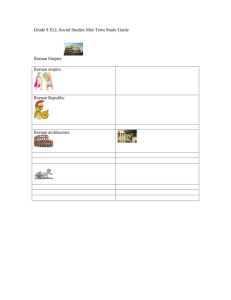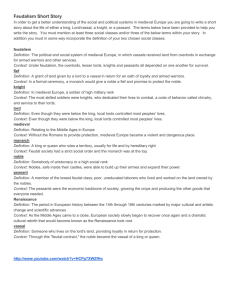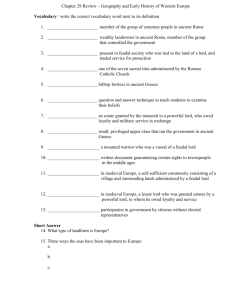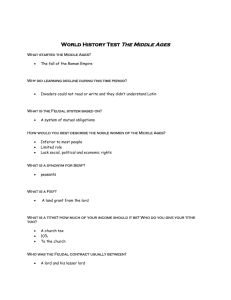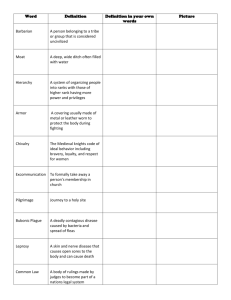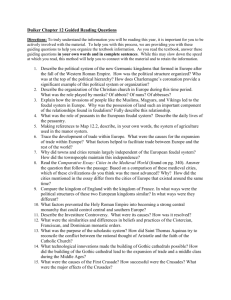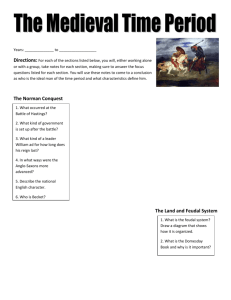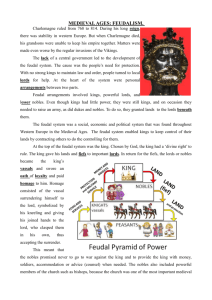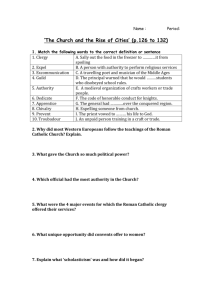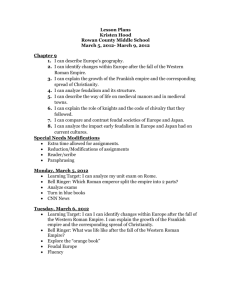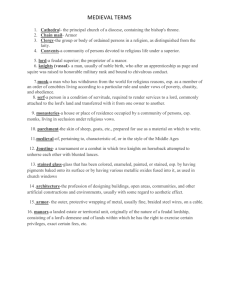File - Ms. Proctor`s Place
advertisement
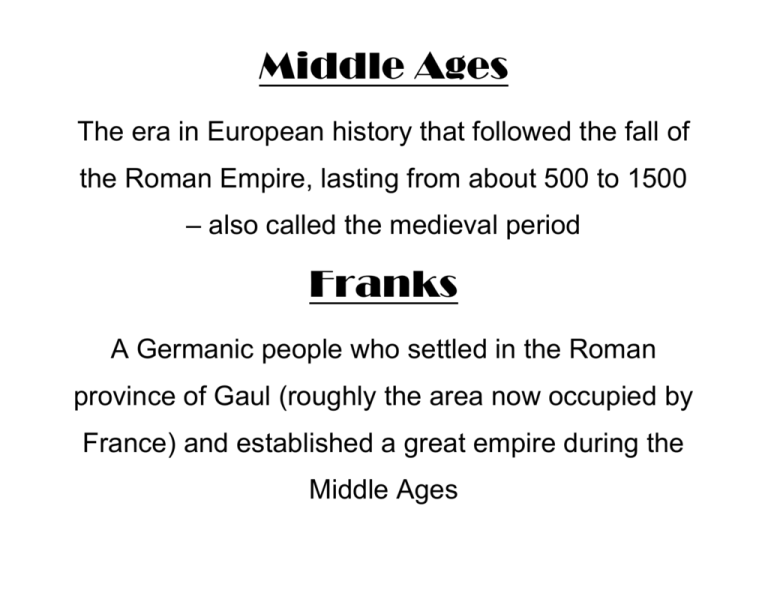
Middle Ages The era in European history that followed the fall of the Roman Empire, lasting from about 500 to 1500 – also called the medieval period Franks A Germanic people who settled in the Roman province of Gaul (roughly the area now occupied by France) and established a great empire during the Middle Ages Monastery A religious community of men (called monks) who have given up their possessions to devote themselves to a life of prayer and worship Secular Concerned with worldly rather than spiritual matters Carolingian Dynasty A dynasty of Frankish rulers, lasting from A.D. 751 to 987 Lord In feudal Europe, a person who controlled land and could therefore grant estates to vassals Fief An estate granted to a vassal by a lord under the feudal system in medieval Europe Vassal In feudal Europe, a person who received a grant of land from a lord in exchange for a pledge of loyalty and services Knight In medieval Europe, an armored warrior who fought on horseback Serf A medieval peasant legally bound to live on a lord’s estate Manor A lord’s estate in feudal Europe Tithe A family’s payment of one-tenth of its income to a church Chivalry A code of behavior for knights in medieval Europe, stressing ideals such as courage, loyalty, and devotion Tournament A mock battle between groups of knights Troubadour A medieval poet and musician who traveled from place to place, entertaining people with songs of courtly love Clergy A body of officials who perform religious services – such as priests, ministers, or rabbis Sacrament One of the Christian ceremonies in which God’s grace is transmitted to people Canon Law The body of laws governing the religious practices of a Christian church Holy Roman Empire An empire established in Europe in the 10th century A.D., originally consisting mainly of lands in what is now Germany and Italy Lay Investiture The appointment of religious officials by kings or nobles
